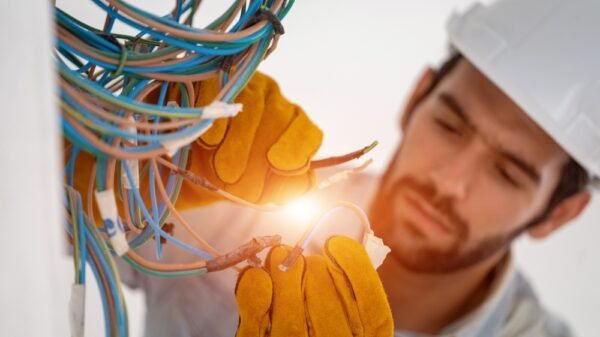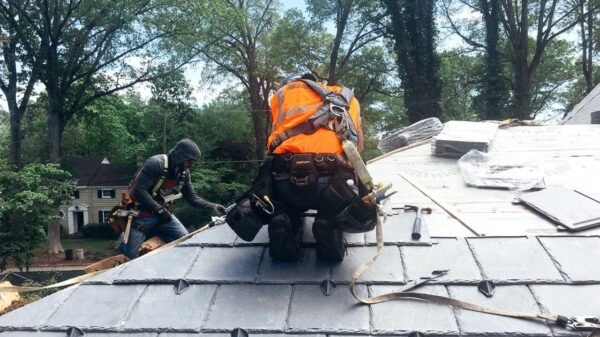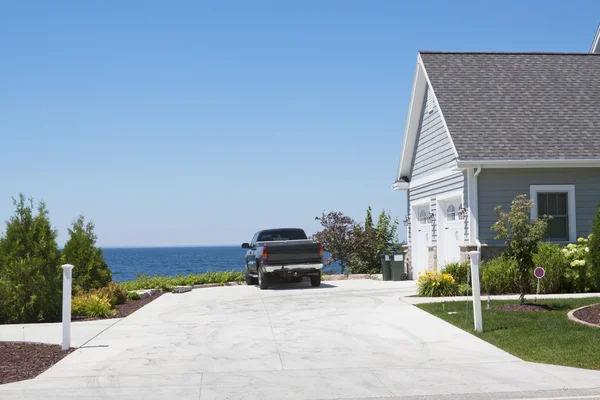A resin driveway is an increasingly popular alternative to traditional driveway surfaces such as concrete and asphalt. This type of driveway surface is made by mixing together resin with aggregates like gravel, stone or glass, then spreading it over a stable and level base. If you’re considering installing a resin driveway, here’s a complete guide to help you understand what’s involved.
Benefits of resin driveways
Resin driveways have a number of benefits over traditional driveway surfaces. They are durable and hardwearing, with the ability to withstand heavy traffic and extreme weather conditions. They are also low maintenance, as they don’t require regular sealing or repairs. Additionally, resin driveways are available in a wide range of colours and finishes, allowing you to create a unique and customized look for your home.
Preparation
The first step in installing a resin driveway is to prepare the site. This involves removing any existing surface and creating a stable and level base. The base can be made from a variety of materials, including concrete, tarmac, or a compacted sub-base. Once the base is prepared, a layer of porous tarmac or concrete is usually applied to create a stable foundation for the resin.
Materials
The next step is to mix the resin and aggregates. The type of resin used will depend on the specific application and desired finish. Epoxy resin is commonly used for indoor surfaces, while polyurethane resin is more suitable for outdoor surfaces due to its UV stability. The aggregates used can be a variety of sizes and colours, and can be combined to create a customised look.
Application
Once the resin and aggregates have been mixed together, they are spread evenly over the prepared base using a trowel. The thickness of the resin layer will depend on the specific application, but it’s usually between 15mm to 25mm. A roller or screed is then used to smooth out the surface and ensure that the resin and aggregates are evenly distributed.
Curing
The curing process for resin driveways can take anywhere from 24 to 48 hours, depending on the specific resin used and the weather conditions. During this time, it’s important to keep the driveway free from foot traffic and vehicles. Once the resin has cured, the surface is cleaned and any loose aggregates are removed.
Maintenance
Resin driveways are relatively low maintenance, but they do require some upkeep to keep them looking their best. Regular sweeping and cleaning will help to remove any dirt and debris that can build up on the surface. Occasional pressure washing can also help to remove stubborn stains. In addition, it’s recommended to reapply a topcoat of resin every 5-10 years to help maintain the surface.
Cost
The cost of a resin driveway can vary depending on a number of factors, such as the size of the area, the type of resin and aggregates used, and the complexity of the installation. Generally, resin driveways are more expensive than traditional driveway surfaces, but they offer greater durability and customisation options.
In conclusion, a resin driveway can be a great investment for your home, providing a durable and attractive surface that requires minimal maintenance. By following these guidelines and working with a reputable installer, you can ensure that your resin driveway is installed correctly and lasts for many years to come.
Choosing a reputable installer
When choosing an installer for your resin driveway, it’s important to do your research and find a reputable company with experience in installing this type of surface. Look for reviews and references from previous customers, and make sure the company has appropriate licensing and insurance.
Considerations for installation
There are a few factors to consider when installing a resin driveway. Firstly, it’s important to ensure that the site is properly prepared and the base is stable and level. Drainage should also be taken into consideration to avoid water pooling on the surface. Additionally, it’s important to consider the amount of traffic that will be using the driveway and choose the appropriate thickness of resin layer.
Environmental considerations
Resin driveways are a more environmentally-friendly option compared to traditional surfaces like concrete and asphalt. They allow rainwater to permeate through the surface and recharge the groundwater, reducing runoff and flooding. Additionally, the use of recycled glass or other materials in the aggregates can further reduce the environmental impact of the installation.
Design options
Resin driveways offer a wide range of design options, allowing you to create a customised look for your home. The aggregates used can be a variety of colours and sizes, and can be combined to create patterns or images. Additionally, you can choose to incorporate edging or other decorative features to enhance the look of the driveway.
Durability
One of the key benefits of a resin driveway is its durability. The surface is hardwearing and can withstand heavy traffic, making it an ideal option for homes with multiple vehicles or commercial properties. Additionally, resin driveways are resistant to frost, UV rays and chemical spills, further enhancing their longevity.
Conclusion
A resin driveway can be a great investment for your home, providing a durable and attractive surface that requires minimal maintenance. By following these guidelines and working with a reputable installer like SUDwell, the resin bonded slab company, you can ensure that your resin driveway is installed correctly and lasts for many years to come.
With their experience and expertise, SUDwell can help you create a customised and long-lasting resin driveway that enhances the look and functionality of your property.
Also Read Interesting Articles At: Geeks Around World.




























































